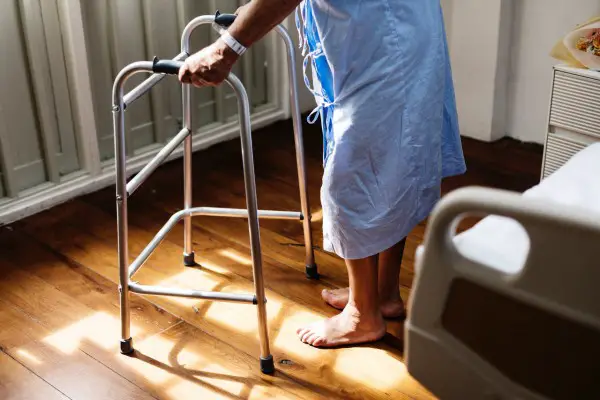Have you visited a vein specialist recently? Did you get the feeling the doctor was pressuring you into getting vein treatment you don’t need? If so, I want to share some important information with you—information that could spare you a great deal of stress and possibly save you thousands of dollars.
At our vein practice we see many patients who come for second opinions. For years now, we’ve seen an uptick of people who have no issues with veins. Yet they were told by their previous vein doctor that they have complications requiring multiple procedures. Some patients have also been told they need more procedures than are actually required, as many as 5-10 more than needed!
Be Aware of Stories Like This One
One vein specialist told a patient in her twenties that she needed nine vein treatments. After going through with four of them, the patient decided she needed a second opinion. The results of her venous reflux exam (the exam used to identify varicose veins) showed no issues with any remaining veins. In reality, she more than likely, didn’t require treatment for any of the nine veins the other clinic had told her she needed.
I don’t want you to be deceived by unethical practitioners. That’s why I want you to read the following information carefully. Doing so will help you choose a vein doctor wisely.
Know Your Vein Specialist
What is their medical specialty? Why is this important, you might ask? Because only four medical specialties—vascular surgeons, general surgeons, interventional radiologists, and cardiologists—require formal training in treating varicose veins.
A much larger group of specialties do not require formal training in treating varicose veins. These include emergency room doctors, ophthalmologists, and general practitioners. Looking at your vein specialist’s medical specialty is one way you can protect yourself. And it’s a good first step. You can also check to make sure that your physician’s specialty is recognized by the American Board of Medical Specialties. Note the Phlebologist medical specialty is not recognized by this board. https://www.abms.org/
Understand Your Vein Condition
Varicose veins are a chronic (long-lasting) condition. Your symptoms should last longer than a few months before you begin seeking treatment. You should be aware that if your symptoms have only been around for a couple days or weeks, it’s probably not related to a chronic condition. Importantly, varicose veins are not an acute condition. This means there is no sudden onset like say, a broken bone or blood clot. Most people with varicose veins experience no adverse health effects.
Ask The Vein Practice About The Experience Of The Technologist
Skill and experience are required for specialists to perform and interpret venous reflux exams accurately. Therefore, these exams should only be performed by registered vascular technologists (RVTs). I recommend choosing a tech with five years of experience or more. By then, the RVT should be comfortable enough to freely answer your questions. What’s more, we technologists love to teach. We love answering questions. If you come across a technologist who is hesitant to answer your questions, that may be a red flag.
Ask to See the Reflux Exam Results
If there’s an issue with your vein, the reflux (reversal of blood flow due to leaking valves) will appear large and dilated. The reflux should be obvious and the veins should appear large. When getting a venous reflux exam, be sure to ask the technician to “Show Me the reflux” the technologist should be able to turn the screen and show the reflux. The color on the screen will turn from blue to red and the red should be significant. If you’re told you have multiple veins that require treatment, you should be able to see the reflux in each one.
Remember to Ask Yourself:
Are your symptoms mild, or are they moderate to severe? That is, are your veins barely visible, or can you see them clearly? Do they bulge? When you compare your symptoms and the appearance of your veins with the amount of work the physician is telling you that you need, does it make sense to you? Is the physician telling you that you have veins that need to be treated even though you don’t have symptoms? Your answers to these questions will help you decide if your veins actually require treatment.
Another patient who came to our clinic was concerned about the amount of work her last physician had told her she needed. The physician was measuring normal veins in her leg and submitting them to the insurance provider as non-functioning. There’s only so much insurance companies can do to stem this fraudulent practice. So, unfortunately, it’s up to you as the patient to be observant.
Ask yourself: Is the physician coaching you into believing you have symptoms that you don’t actually have? To scare you into getting vein treatment?
Be Your Own Advocate
Many doctors will try to bully you by telling you you’re at risk for deep vein thrombosis (DVT). While this is true for those with varicose veins, the risk is minimal. In extreme cases, varicose veins might cause an ulcer. Again, though, the risk is minimal. You do not have to get your varicose veins treated. Do not allow doctors to treat veins/legs that show no symptoms.
Don’t Let Doctors Scare You Into Getting Your Veins Treated
In a perfect world, all vein specialists have your best interests in mind. But the world isn’t perfect. To protect yourself, remember: Find out your vein specialist’s medical specialty, understand your condition, choose an experienced tech for your venous reflux exam, ask the tech to show you the reflux, and ask yourself whether the appearance of your veins matches the amount of work the physician is telling you that you need.
Above all, if your veins/legs show no symptoms, do not allow doctors to scare you into undergoing treatment.
Read This Next
Have you visited a vein specialist recently? Did you get the feeling the doctor was pressuring you into getting vein treatment you don’t need? If so, I want to share some...
Read MoreWhat Is The Term For A Vein Doctor? More than 20% of people will get varicose veins or spider veins in their lifetime, requiring them to visit a vein doctor. Of course,...
Read MoreThe Ultimate Vein Guide is proud to welcome Northwest Vascular and Vein Specialists. With two locations in the Chicagoland area—one in Arlington Heights and one in Libertyville—they...
Read MoreISET 2019 January 25-30, 2019 Hollywood FL. Website: iset.org AVF 31th Annual Meeting 2019 February 19-22, 2019 Tucson, AZ Website: www.veinforum.org/medical-allied-health-professionals/avf-annual-meetings/2019-annual-meeting ...
Read More





